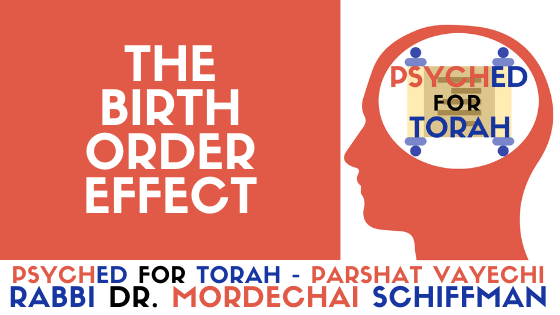THE BIRTH ORDER EFFECT
- PSYCHEDFORTORAH
- Dec 30, 2020
- 3 min read

In a fascinating analysis of 700 brothers who played Major League Baseball, psychologist Frank Sulloway found that younger brothers were 10.6 times more likely to try and steal a base and 3.2 times more likely to be successful at stealing than their older counterparts. This study aligns with previous research indicating that sibling birth order influences personality development. The oldest sibling is generally more intellectual, responsible, and conforming. In order to carve out a space for themselves, younger siblings take more risks, are more creative, and are non-conforming. Despite the supporting evidence, these findings are hotly debated. In subsequent studies, other scholars contend that when more robust research methods are utilized, there are no significant personality differences among siblings based on their birth order.
Without taking a stand on which side of this debate is more convincing, it is clear that the topic of birth order is central to the entire Sefer Bereishit and reaches its full development in Parshat Vayechi. This theme begins with the deathly rivalry between Kayin and Hevel and continues with the contentious relationships of Yishmael and Yitzchak, Esav and Yaakov, Leah and Rachel, and Yosef and his brothers. While each relationship had its own dynamic that added to the drama, the fact that the younger sibling took the spotlight away from the older sibling is a theme that cuts through each episode. This is particularly accentuated in the story of Esav and Yaakov where Esav sells his firstborn rights and the brothers contend for the blessing of the firstborn from their father.
Yaakov, the youngest child, to the chagrin of his older children, favored his two youngest, Yosef and Binyamin. This contributed to the eventual sale of Yosef and set the stage for the reunification of the family in Egypt. While in retrospect the culmination of the plot was fortuitous, the tragedy and trauma of the years of separation took a toll on all the parties, especially on Yaakov. It is therefore surprising that upon providing blessings for Yosef’s two sons, Menashe and Ephraim, Yaakov switches his hands and provides the better blessing to the younger son, Ephraim. Yosef, presumably with raw memories related to the real dangers inherent in favoring one child over the other, especially a younger child over an older child, tries to intervene and tells his father that he has the order wrong. Yaakov, however, responds that his preference for Ephraim is intentional. He, after all, will become greater than Menashe, and is thus deserving of the greater blessing.
We are still left wondering: does Yaakov really not realize the dangers of his decision? Why does he double down on favoring one over the other at the end of his life?
Perhaps Yaakov is communicating to his children, grandchildren, and to all subsequent generations, that success in life should have nothing to do with birth order. While being born first may have advantages, it does not determine one’s future accomplishments. Being born second, third, or twelfth, may have some disadvantages, but the order does not have to dictate one’s place in the world. The youngest child can succeed more than an oldest child, and for that matter, the oldest child can succeed more than the younger ones. Starting with Kayin and Hevel and culminating with Ephraim and Menashe, Sefer Bereishit subverts what was the accepted norm, that the oldest is automatically endowed with greatness and privilege. This sets the stage for Sefer Shemot, where for the first time, a younger brother, Moshe, surpasses his older siblings, with everyone graciously accepting their roles based on merit.
As the scientific community continues to debate whether birth order generally impacts personality, perhaps the message of Sefer Bereishit is that, either way, we shouldn’t let it impact our accomplishments. Success should be based on merit, not birth order.



Comments